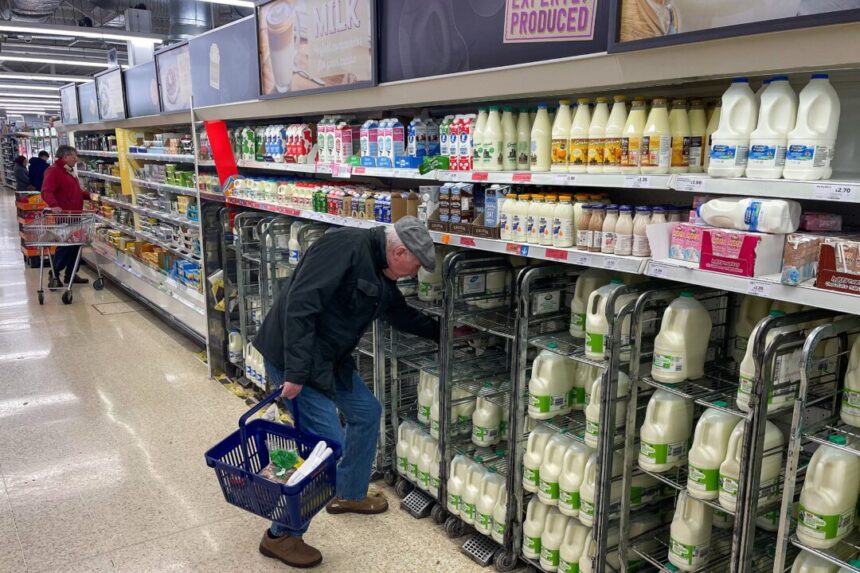Consumer confidence in organic milk deliveries has dropped by 25 percent due to the cost-of-living crisis, leading to a fragile market, according to the Agriculture and Horticulture Development Board (AHDB).
The AHDB warns that organic milk producers may need to reduce production levels as farms struggle to meet organic farming standards, which prohibit the routine use of antibiotics and wormers. These standards require cows to be fed a natural and organic diet, primarily consisting of grass.
The decline in organic milk production is attributed to the cost-of-living crisis and weakening consumer demand, with pressures from lockdowns and global conflicts affecting farming operations. The AHDB reports that in the 2023/24 milk year, organic milk deliveries are down by 25 percent compared to the previous year.
David Swales, head of EA operations at AHDB, explains that high costs and limited availability of organic feed have caused many farmers to revert to conventional production methods, impacting profit margins. Switching back to organic farming could take two to three years, potentially leading to shortages of organic milk until supplies are replenished.
While consumer demand for organic milk is showing signs of growth, uncertainties in the economy could hinder the return of demand. AHDB emphasizes the need for organic producers to justify their premium to consumers by highlighting taste, environmental benefits, and health advantages.
The UK government’s push for rewilding land as part of conservation efforts may further impact agricultural practices, as environmental outcomes become a potential source of revenue for farmers. The shift towards environmental support models could attract buyers motivated by a green agenda, influencing the future market trends.
Please rewrite this sentence for me.
Source link





